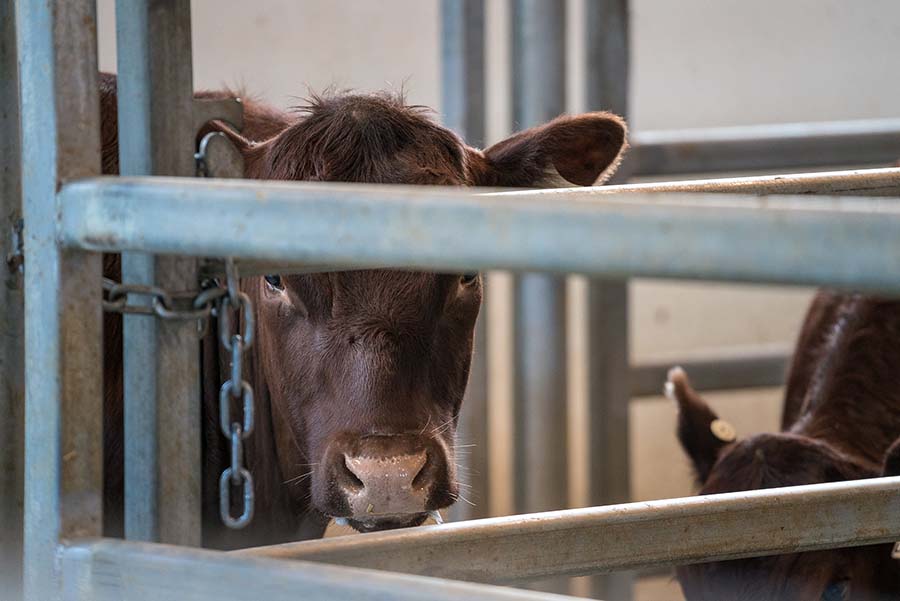Animal Welfare and Biosecurity

Biosecurity
The CART complex comprises a number of facilities that house multiple species at any one time, and supporting multiple disciplines within animal research. As such, biosecurity is a critical component of the activities carried out at CART. Good biosecurity is essential in keeping animals free from pests and diseases and ensuring a high standard of animal welfare.
The CART Biosecurity Management Plans are a series of species-specific documents that cover, in detail, the particular biosecurity requirements when working with certain animals (poultry, swine, sheep and cattle). Researchers and employees must follow the directives of these documents, and complete Read and Acknowledge documentation, which is maintained within the CART SOP Register.
General biosecurity requirements for all users and visitors to the CART complex include:
- Wear sturdy, enclosed footwear and clean clothing (apply clean overalls if you have been in contact with animals prior to your visit)
- Do not enter the CART complex if you have visited any country where foot and mouth disease is present in the previous seven days
- Do not enter the CART complex if you have had contact with poultry or swine in an overseas country in the previous seven days
- Use the footwear brush to remove any organic matter from footwear prior to entering any facility
- Step firmly onto the blue disinfectant mat prior to entering any facility and after exiting
- Swipe your access card at every card point (even when entering as a group)
- Wash hands before and after contact with animals
- Read and adhere to all signage and follow any directions from CART staff
If you have any questions or concerns regarding biosecurity, please contact the CART Director or the UNE Veterinarian and Animal Welfare Officer as soon as possible.

Animal Welfare
The welfare of our animals is our highest priority. The use of any animal at the University of New England for teaching, research or commercial purpose, is underpinned by the guidelines of the Program of Veterinary Care.
Lodge an animal welfare concern
For immediate attention contact:
| Sarah Radford (UNE Veterinarian and Animal Welfare Officer) | 0438 259 698 |
| Justin Bailey (CART) | 0408 409 142 |
| Pete Fitzgerald (SMART Farms) | 0408 025 716 |
| Adam Hamlin (Animal Ethics Committee) | (02) 6773 2579 |
| Principal Investigator | Contact details displayed at the entrance to the animal enclosure |
Report a regulatory breach
Please visit the UNE Animal Ethics Committee website to report a regulatory breach.
Regulatory breaches may include, but are not limited to:
- Carrying out procedures not approved by the AEC for a specific project
- Mistreatment of research/teaching animals
- Carrying out animal research/teaching without an active ARA
- Non-approved personnel working on a project
- Care and use of animals for scientific purposes that are not being conducted in accordance with the Code and/or other relevant legislation
Make an anonymous (unofficial) report
If you do not wish to make an official report, but wish to remain anonymous, place a written note in an envelope addressed to the UNE Veterinarian/Animal Welfare Officer in the mail tray located in CART reception, or via Australia Post stamped and addressed to:
UNE Veterinarian/AWO
Animal House Building W071
School of Environmental and Rural Science
University of New England
Ring Road
Armidale, NSW, 2351

